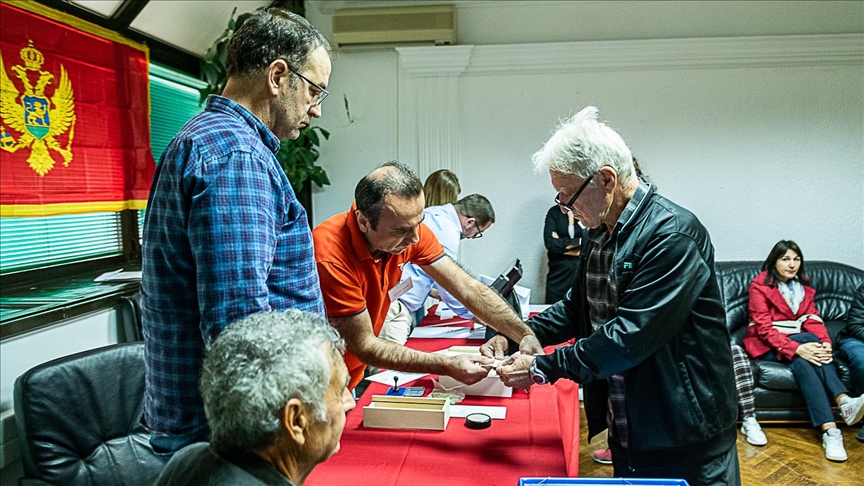BELGRADE, Serbia
In the small Western Balkan nation of Montenegro, voters will be going to the polls on Sunday to choose the country’s eighth president.
Seven candidates, including a woman, are competing for the next five-year term in the top office.
According to data from the State Election Commission, over 542,000 registered voters will be eligible to cast a ballot in the country’s eighth presidential election since transitioning to a multi-party system in 1990.
The current president, Milo Djukanovic, of the Democratic Party of Socialists of Montenegro, is one of the favorites, along with right-wing Andrija Mandic of the Democratic Front.
Also vying for the presidency are Draginja Vuksanovic-Stankovic of the Social Democratic Party, Aleksa Becic of Democratic Montenegro, Jakov Milatovic of Europe Now, Goran Danilovic of United Montenegro, and independent candidate Jovan Jodzir Radulovic.
Having served six times as prime minister and twice as president, Djukanovic, 61, is known for his pro-Western policy.
While the 58-year-old Mandic is strong among the country’s Serb community, Djukanovic is expected to receive support from minority parties representing Bosniaks, Albanians, Croats, and Roma.
In the previous 2018 elections, Draginja Vuksanovic-Stankovic of the Social Democratic Party made history as the first woman to run for president in Montenegro.
A doctorate in law, Vuksanovic-Stankovic is once again the only female candidate in this year’s election.
If none of the candidates get at least 50%, the two candidates with the most votes will face each other in a runoff on April 2.
This will be followed by early parliamentary elections on June 11, according to an announcement by Djukanovic on Friday.
“Everyone is aware of the deep political and institutional crisis, which was produced by the irresponsible majority. I steadfastly adhered to the Constitution, so as not to contribute to it,” he said, referring to a no-confidence vote on Aug. 20, followed by a now-expired mandate to form a government.
Political crisis in Montenegro
The process of forming a new government, which started after the administration led by Dritan Abazovic failed last year’s vote of confidence, has since devolved into political crisis.
Abazovic’s government had caused controversy after signing a “fundamental agreement” with Serbian Orthodox Church Patriarch Porfirije for Montenegro to give that church “official status.”
While pro-Serbian parties in the country proposed lawmaker Miodrag Lekic to form a new government, Djukanovic refused to give him a mandate on the grounds that he did not fulfill the necessary conditions.
However, Lekic was later tasked with forming the government regardless, after the passage of a law that restricted presidential powers on government formation.
But the lawmaker later failed in this, falling short of majority parliamentary support needed to form a government within the stipulated time limit.


